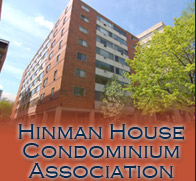| Why it's difficult to compare assessment rates between condos in our market |
|
This is a message sent recently (10/26/25) to Hinman House unit owners about whether we track our assessment rates in comparison with other condos/co-ops in our market:
We do not track what other condo buildings (or co-ops) in our vicinity charge for assessments. - Certainly
older buildings like Hinman House charge more than the new high-rise
buildings that use low assessments to get sales of all units before the
developer turns over association control to the owners. (What happens
after the developer turns over ownership would be interesting to know.
My guess is that the boards of new units keep assessments low until
things inevitably start breaking and the board has to choose between
raising assessments to build reserves or relying on
repeated special assessments that predictably will kill marketability of
units.).
- Many associations elect not to build a reserve fund,
which probably makes for lower monthly assessments, but certainly leaves
unit owners at risk of special assessments for every major mechanical
repair, building structure repair, or renovation project. Repeated
special assessments hurt current owners and, as said previously, kill
marketability.
- Co-ops include a unit's property tax in their assessments, since technically the co-op "owns" the units, with
individual owners as shareholders in the co-op. Condo owners pay their
property tax individually, separate from their assessments, which may
make their assessments seem lower, but do not reflect the full ownership
cost as co-op assessments do.
- HInman House and the neighboring
buildings in our immediate area are all "of a certain age." But Hinman
House has three-, four-, and
five-times as many units as any of our neighbors. Their budget totals
are
fairly comparable with ours, but of course they have fewer owners to
share the cost, so their assessments to individual owners are larger.
- Some
boards have greater expertise, and better advice from their property
management company, than others. Weaker boards, and boards with
less-able property management, may have lower assessments, but pay far
less attention to maintaining their property, which, or course, means
more special assessments.
For all these reasons, comparing
assessments from one condo or co-op to another can be very misleading.
In our own immediate neighborhood, I meet with presidents of the nearby
condos and co-ops, and my sense is that our per-unit monthly assessments
are significantly LOWER than theirs, and in addition, we have had far
fewer special assessments. . . .
|
Copyright � 1998-2026 AtHomeNet, Inc. All rights reserved.
HOA Sites by AtHomeNet
|

